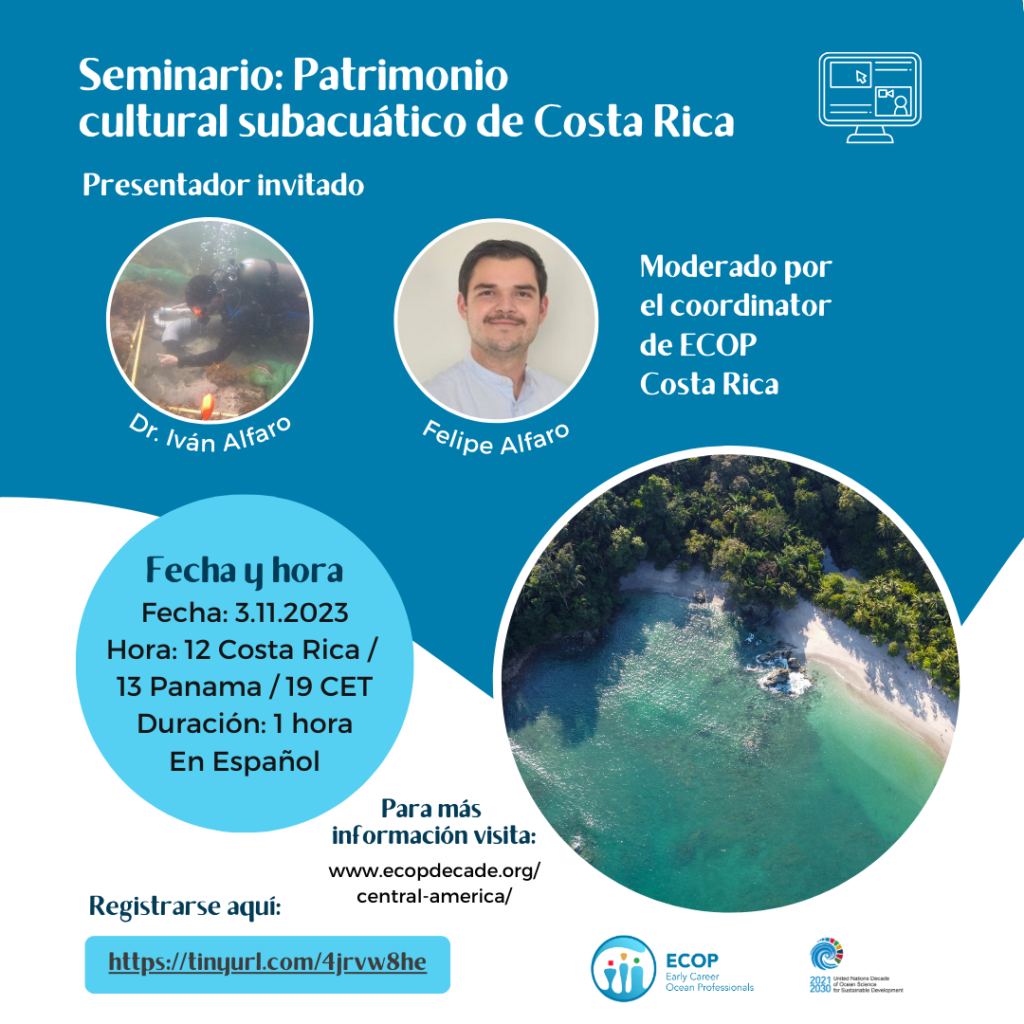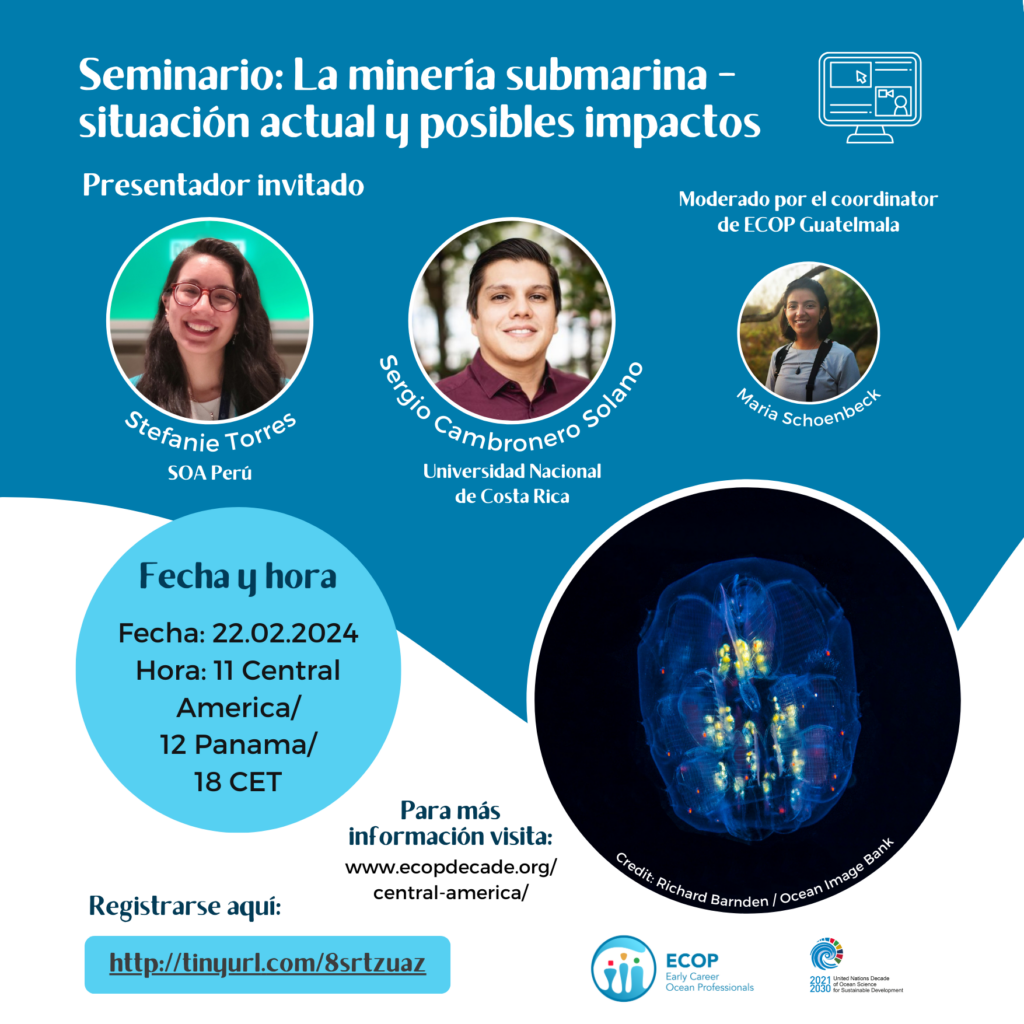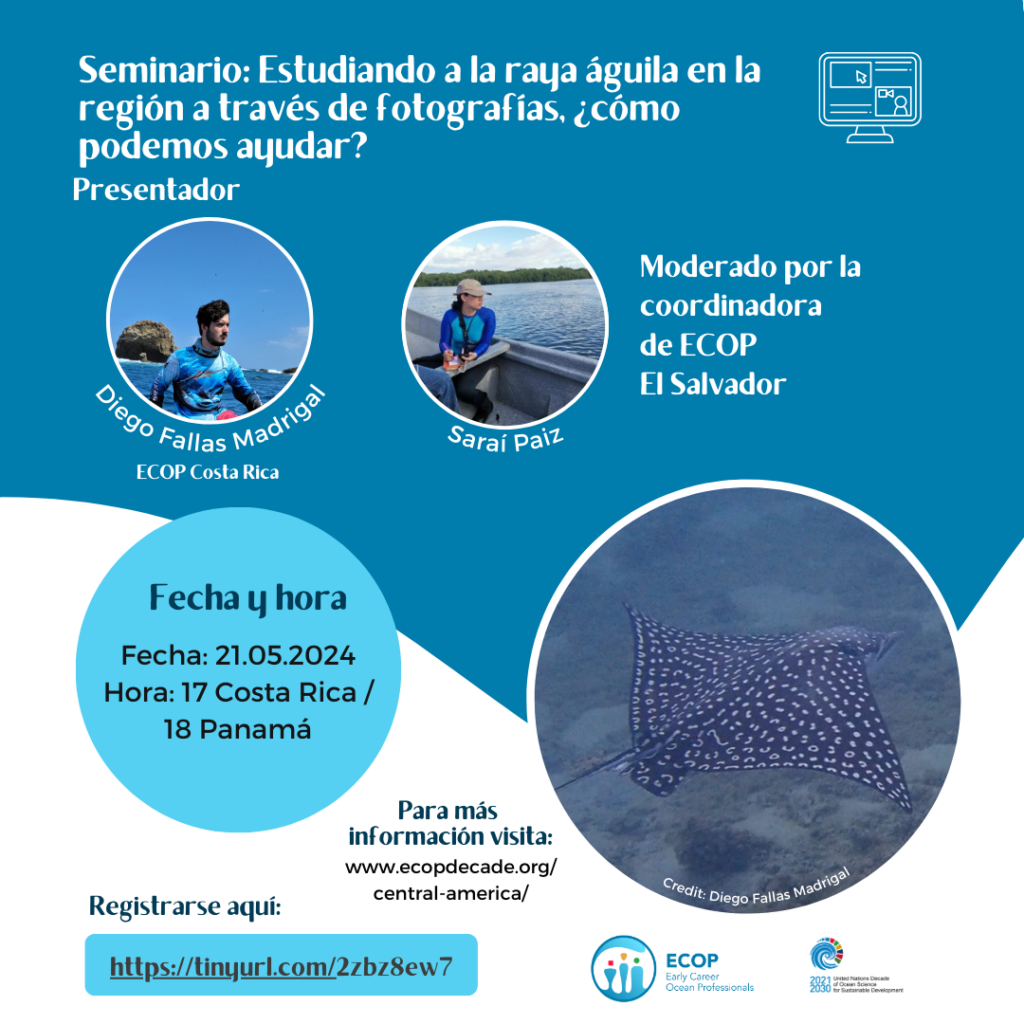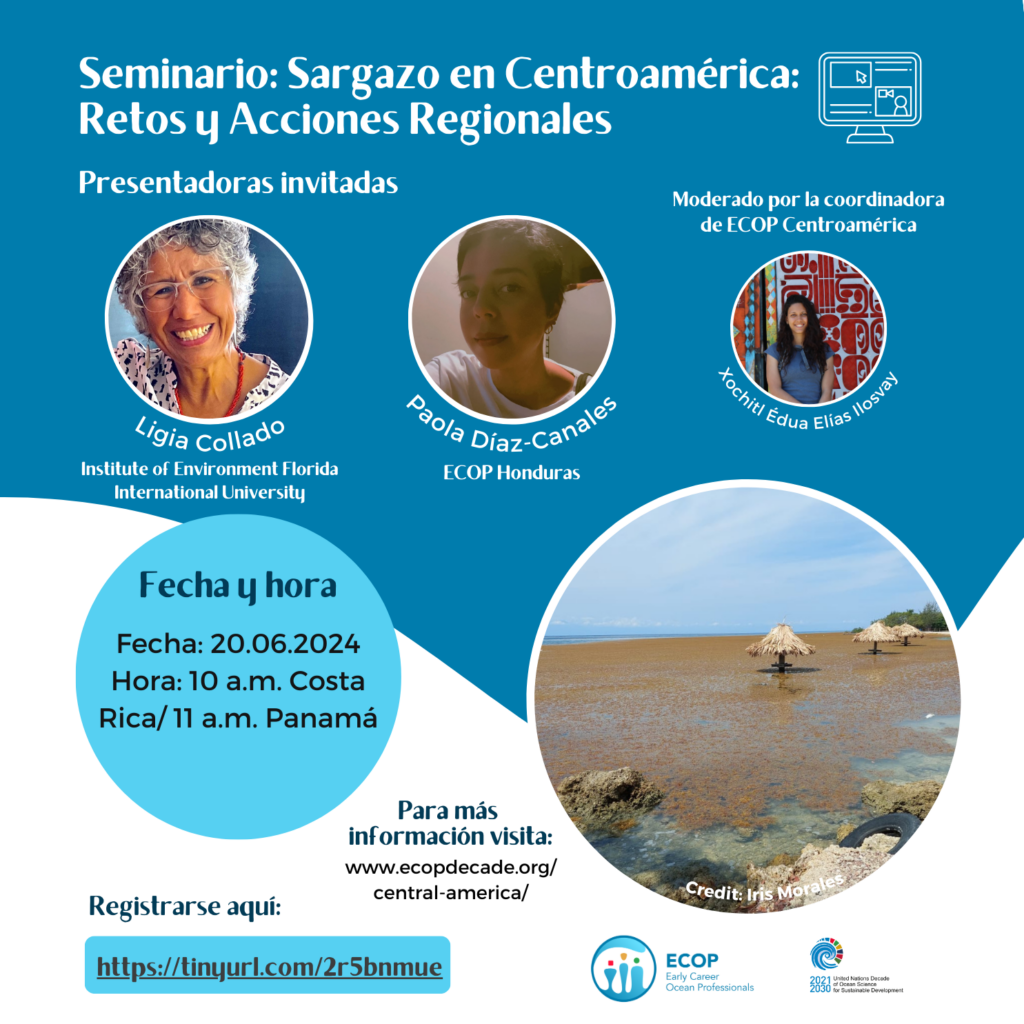REGIONAL NODE -
central america
Photo credit: Zeynep Gökalp/Unsplash
Introducing ECOP Central America
ECOP Central America aims to empower and showcase the contribution of Central American ECOPs to the UN Decade visible at the local, regional, and international levels through network-building and knowledge-sharing.
Who is a Central American ECOP?
We welcome every Central American citizen or resident that self-identifies as being within 10 years or less of experience in any ocean-related occupation (not necessarily paid), it does not matter if you are currently working somewhere else in the world.
What’s our vision?
- Raise awareness and disseminate the importance of the ocean at a regional scale
- Promote cross-sectoral knowledge exchange and cooperation between Central American ocean professionals and organizations to promote interdisciplinarity
- Increase the representation of the Central American ECOPs in the regional and international scape
- Provide mentoring to Central American ECOPs for career building
- Strengthen the cooperation with other Latin American regions such as Mexico, South America, and the Caribbean
- Create strong regional and international networks and bonds that transcend the UN Ocean Decade.
Meet ECOP Central America
Hear what the ECOP Central America Node has been up to from regional coordinator Xochitl Elias. She talks about the challenges of ECOPs in the region, such as access to funding, lack of networks of ECOPs, language barriers, and limited mentorships. Xochitl also discusses what activities her team is running and what plans they have.
Want to join?
We welcome every Central American ECOP to join our network to receive more information on any regional and international activities and opportunities. Join our social channels on instagram and facebook. Download our digital flyer here (in Spanish).
For any enquiries, please contact: central_america@ecopdecade.org
Our plans
- Create a cross-sectoral regional network of ECOPs and facilitate the creation of further regional networks
- Identify the regional barriers and needs of ECOPS through a Latin American survey
- Facilitate opportunities (internships, jobs, conferences, research stays, training) by building up a network of institutions, NGOs, industries, and funding options and creating a map to visualize their location in the region
- Disseminate relevant news, opportunities (internships, jobs), training, events (seminars, workshops, symposia), and funding opportunities
- Facilitate the training of Central American ECOPs to increase their opportunities and participation in the international landscape
- Organize monthly seminars given by Central American ECOPs, mentors, or invited speakers to share the work, expertise, and experiences
- Organize training and symposia related to the UN Ocean Decade that will allow for cross-sectoral knowledge exchange among the Central American countries
- Organize national outreaching initiatives to involve citizens in ocean conservation
- Work in collaboration with other Latin American regions, including Mexico, South America, and the Caribbean
Monthly seminars
Watch the recordings below and stay tuned for future seminars to be scheduled.
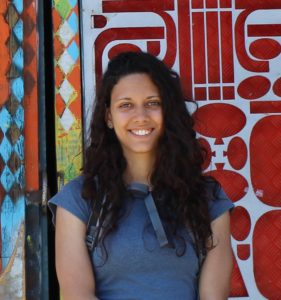
Xochitl Édua Elías Ilosvay
Central America coordinator
Xochitl is an interdisciplinary ECOP fascinated with how humans interact with the ocean and the opportunities to create a sustainable, just, diverse, and inclusive relationship. She is currently pursuing her Ph.D. at the University of Vigo.
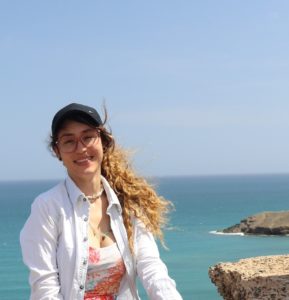
Juliana Di Filippo Taborda
Central America intern
Juliana is a biologist (MSc. in Marine Resource Management) who’s passionate about the ocean with an especial interest in marine animals ecology and management, sustainability and the empowerment of the human coastal communities through interdisciplinary projects including environmental education and science communication.
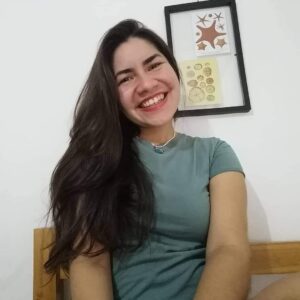
Fernanda Ramos
Central America communications team
Fernanda is a biologist with more than 5 years of experience working on coral and rocky reefs in my country. Since her beginnings in marine biology, she has focused on knowing the dynamics of marine ecosystems from the biological and ecological part, working with the different groups that compose them. She currently focuses on the study of reef echinoderms (starfish and their relatives).
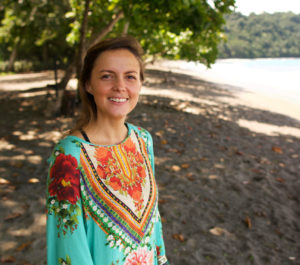
Juliana Corrales
Central America communications team
Juliana is an ocean advocate with a passion for bringing people closer to the ocean. She’s built on her 10+ years of experience as a graphic designer and communicator with an MA in Sustainable Natural Resource Management and has worked developing a behavioural design approach to marine conservation. Uniting creativity with ocean conservation.
Central America National Nodes
Costa Rica
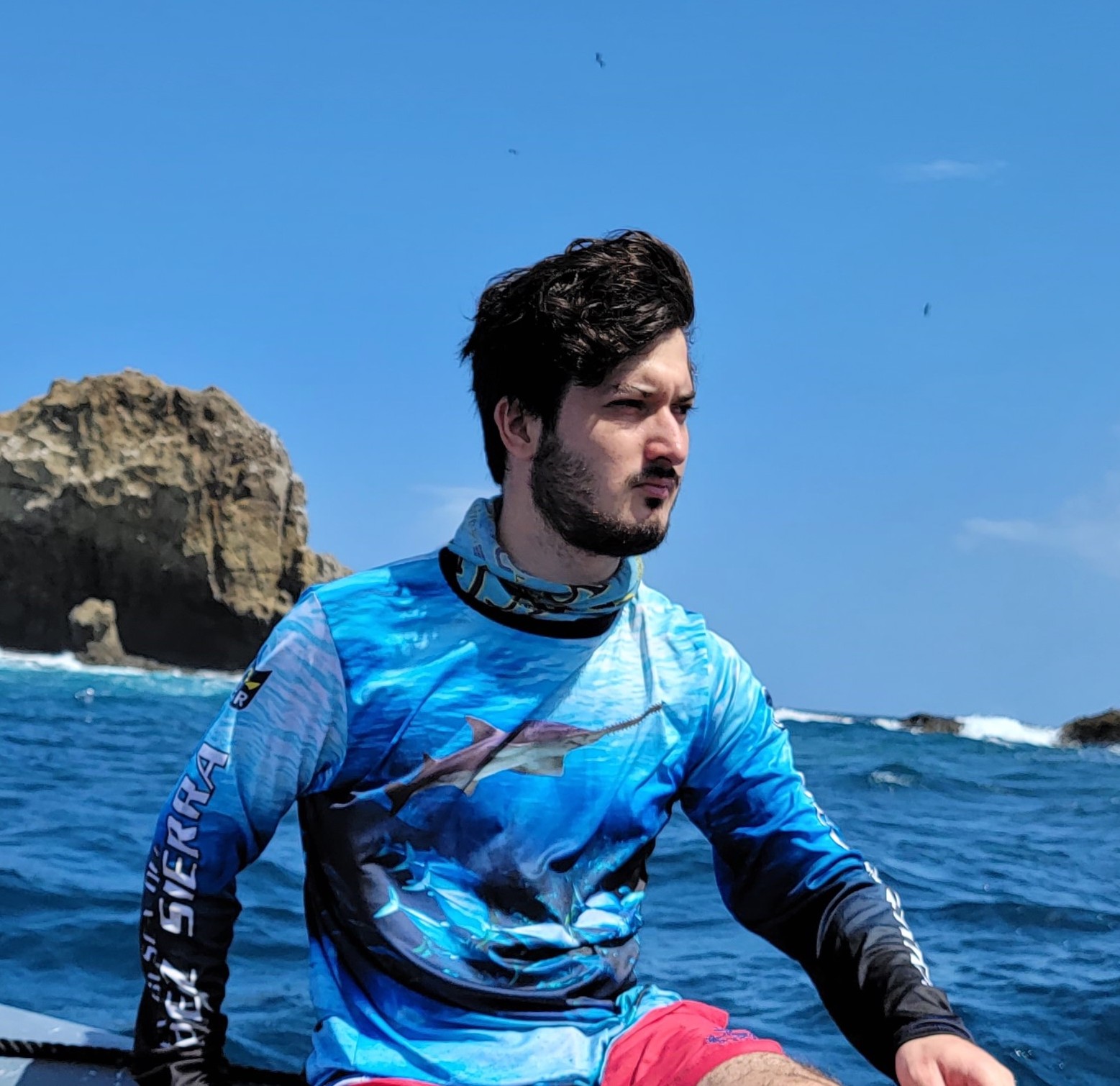
Diego Fallas Madrigal
Costa Rica coordinator
Diego is a biologist with preparation in ecology, sustainable development and natural resources management, but mainly involved in marine biology studies where he leads and collaborates in national, regional and global projects. With his efforts he is supporting the understanding of sharks, rays and bony fishes abundance and spatial distributions. He is currently starting his Master’s studies at the University of Costa Rica (UCR).
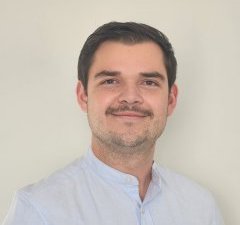
Felipe Alfaro
Costa Rica coordinator
Felipe is a passionate coastal engineer (MSc. Coastal and Ports Engineering-University of Cantabria) who works as a researcher in the Laboratory of Maritime Engineering of the University of Costa Rica (IMARES-UCR). His current research interests lie in the numerical modeling and analysis of waves propagation focused on projects related to wave climate forecasts for downtime analysis in ports, design of coastal protection infrastructure, nature-based solutions and climate change.
El Salvador
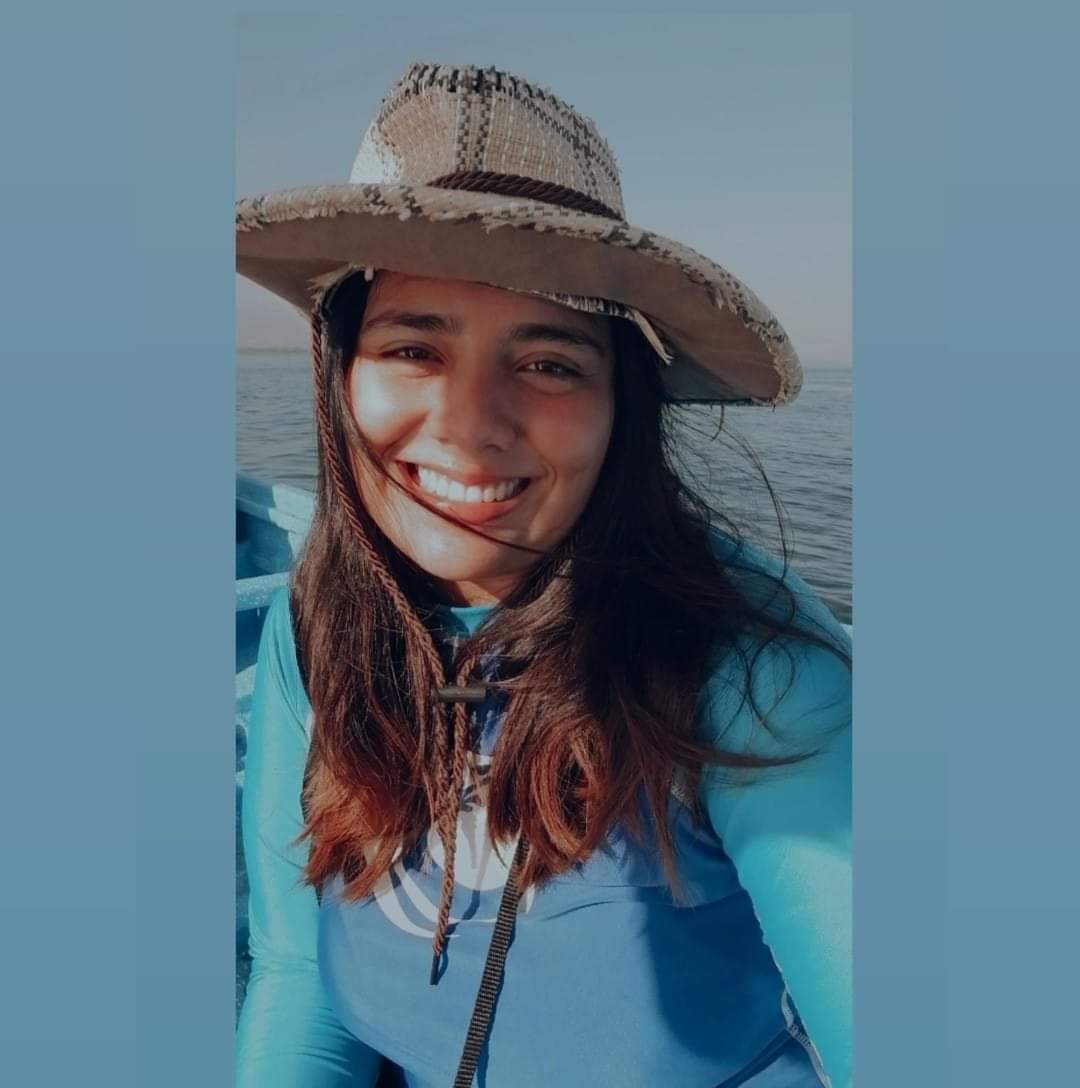
Laura Figueroa
El Salvador co-coordinator
Laura is enthusiastic about marine life and its conservation and currently finishing her Bachelor’s Degree in Biology at the University of El Salvador. She also engages in science communication and raising awareness about the importance of the oceans in El Salvador.

Michelle Constanza
El Salvador co-cordinator
Michelle, a Bachelor’s student at the University of El Salvador, is passionate about reef ecology and specializes in environmental toxicology. Currently, she is researching mercury levels in ray tissue along the coast of El Salvador, contributing to marine conservation efforts.
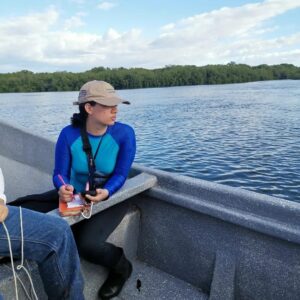
Sarai Paiz
El Salvador co-coordinator
Sarai graduated with a degree in Biology from the University of El Salvador. In her studies, she developed a particular interest in molecular biology and its application to species conservation and geometric morphometry of batoids. She is currently working on analyzing the morphometry of Pacific white-spotted eagle rays off the coast of El Salvador.
Guatemala
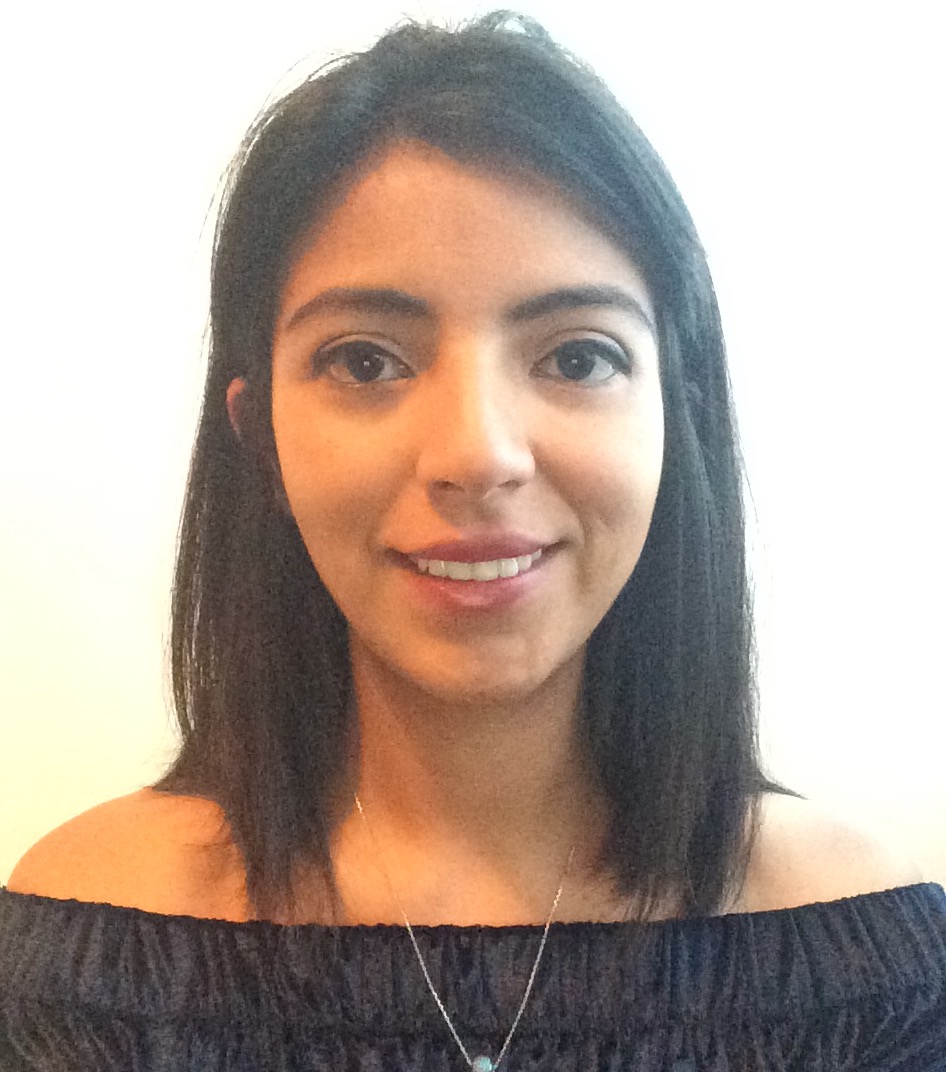
María Schoenbeck
Guatemala coordinator
María is a biologist working in the marine-coastal zone in the Pacific coast of Guatemala, mainly with fisheries and identifying threats, including climate change impacts on fisheries and the marine-coastal zone with the aim of creating participatory strategies for resource conservation and spatial planning. She is currently a Fellow from the Coastal Solution Program from Cornell University.
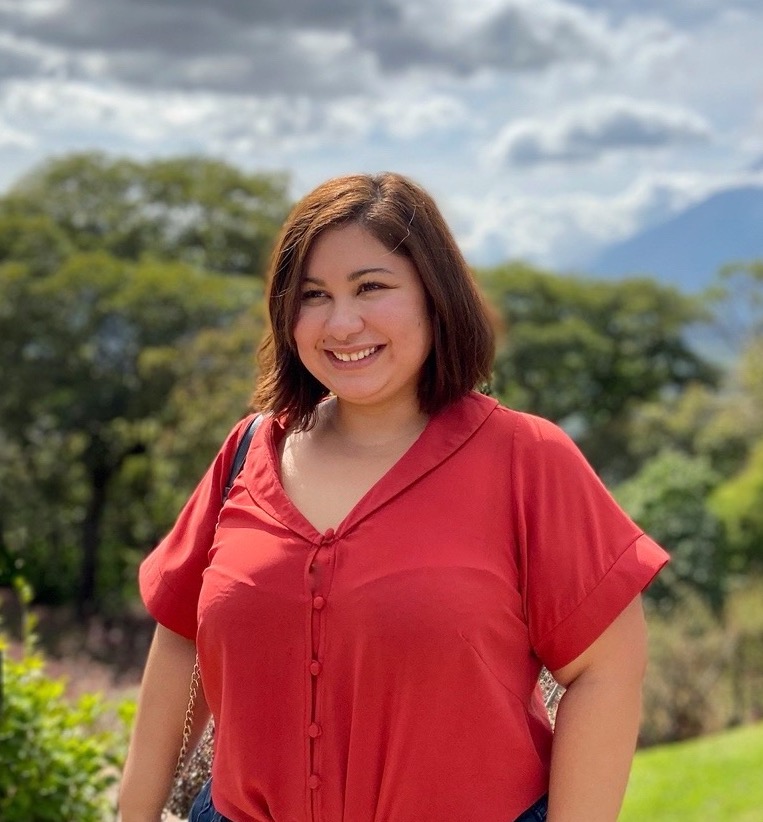
Andrea Lira Loarca
Guatemala coordinator
Andrea is a coastal scientist (PhD. in Coastal and Environmental Engineering) working on climate change effects on wave climate and extreme coastal water levels and coastal impacts. She is currently a Postdoctoral Fellow at the University of Genoa, Italy.
Honduras

Zara Guifarro
Honduras coordinator
Zara is a biologist with a master´s degree in Applied Ecology and Conservation. She has worked in different protected areas in Honduras working towards the conservation of manatees, reef fishes, and most recently corals. She is currently working with coral spawning, assisted fertilization, and building capacities in coral restoration in the Bay Islands of Honduras
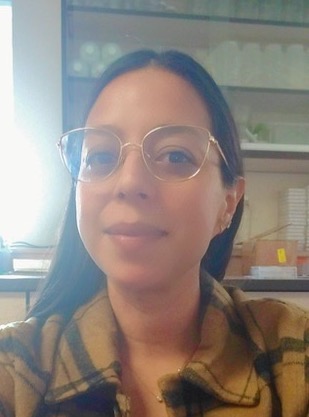
Paola Diaz Canales
Honduras coordinator
Paola is a Master’s student at the University of Costa Rica (UCR). She is currently studying the spatial variability of stable isotopes of algae and parrotfish to identify the feeding habitats for the integrated management of compressor fisheries in the North Pacific of Costa Rica. She is also co-directing the research at UCR on the current status of pelagic sargassum in the Caribbean coasts of Central America.
Nicaragua
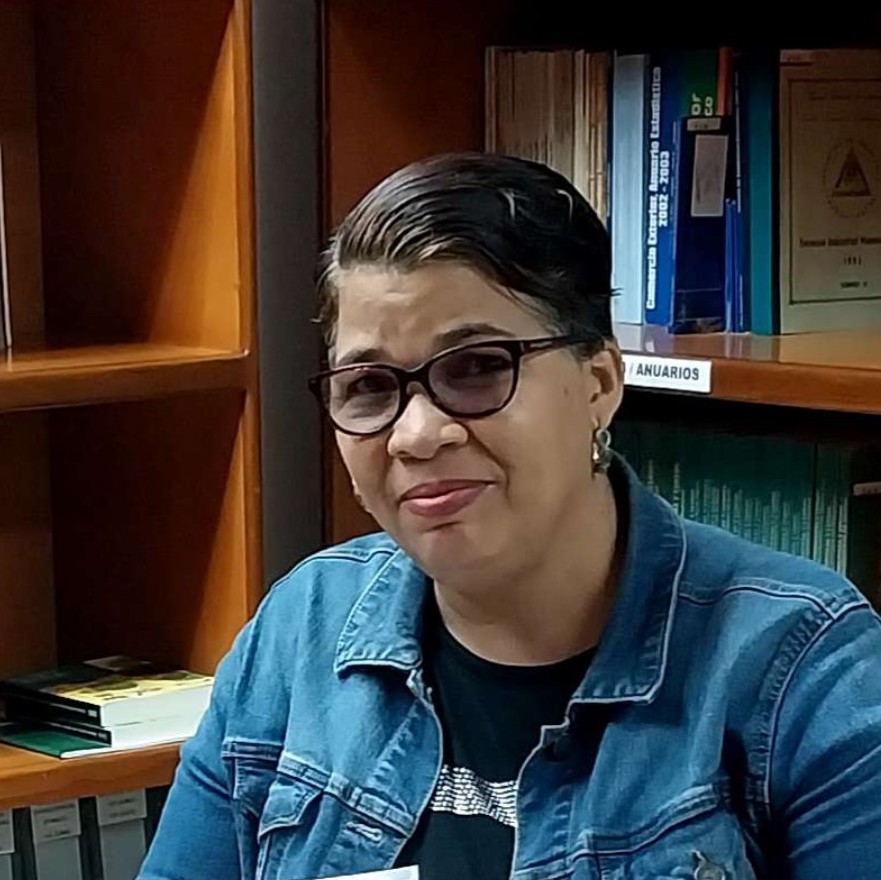
Mabel Watson
Nicaragua coordinator
Mabel studies terrestrial and aquatic ecosystems and currently works at developing inclusive, collaborative, and supportive strategies to manage marine resources and ensure the well-being of the coastal communities in the Pacific Ocean. She is in the last semester of her Bachelor’s Degree in Environmental and Natural Resources Management at the Universidad Nacional Autónoma de Nicaragua.
Panama
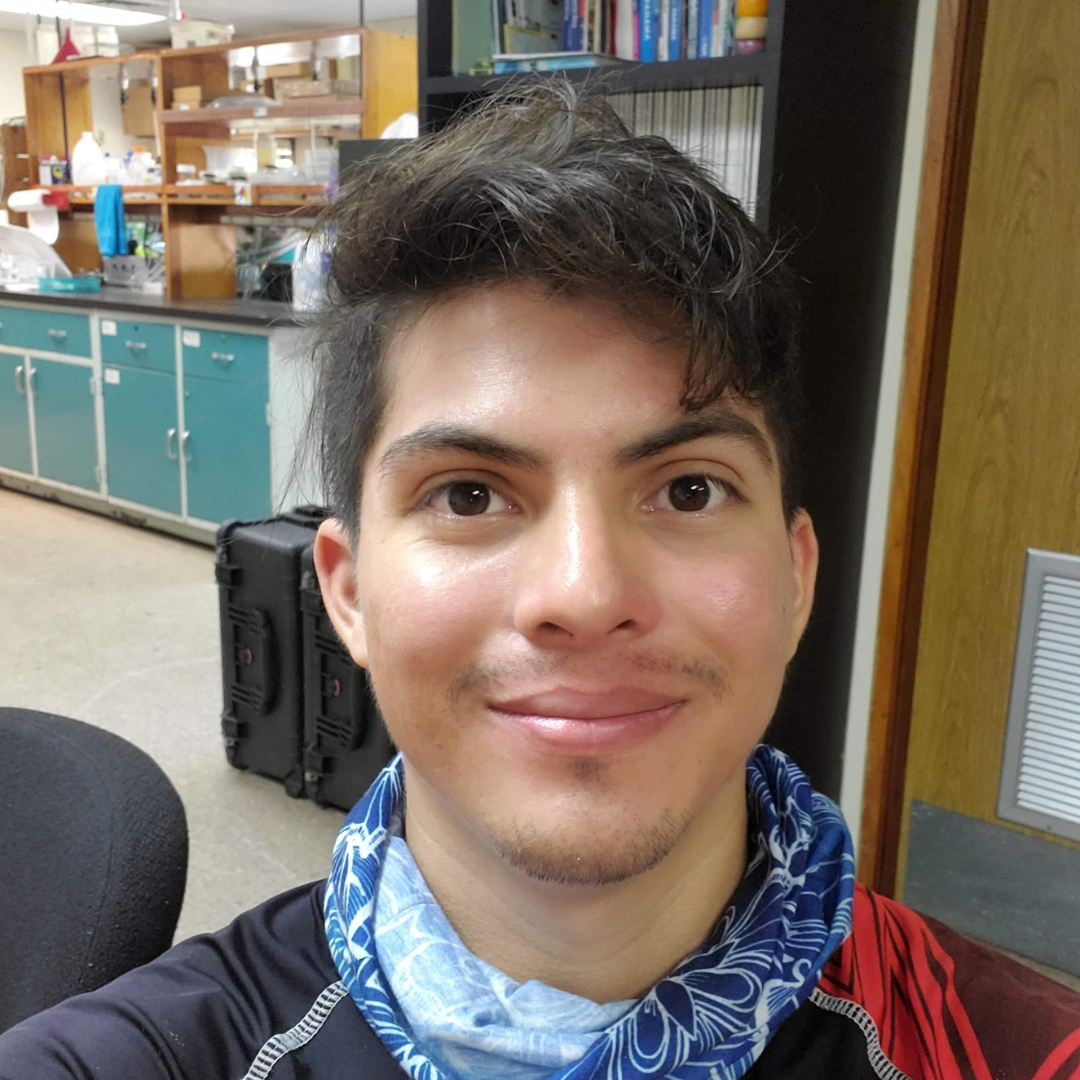
Luis Rodríguez Castrejón
Panama coordinator
Luis is a Panamanian biologist, with 4 years of experience working with zooplankton for environmental consulting projects. Currently, he is finishing my master’s degree (MSc. Parasitological Sciences), where he studies the effects of upwelling on the abundance of parasites in commercially important groupers. He is interested in ecological, taxonomic, and human health aspects.
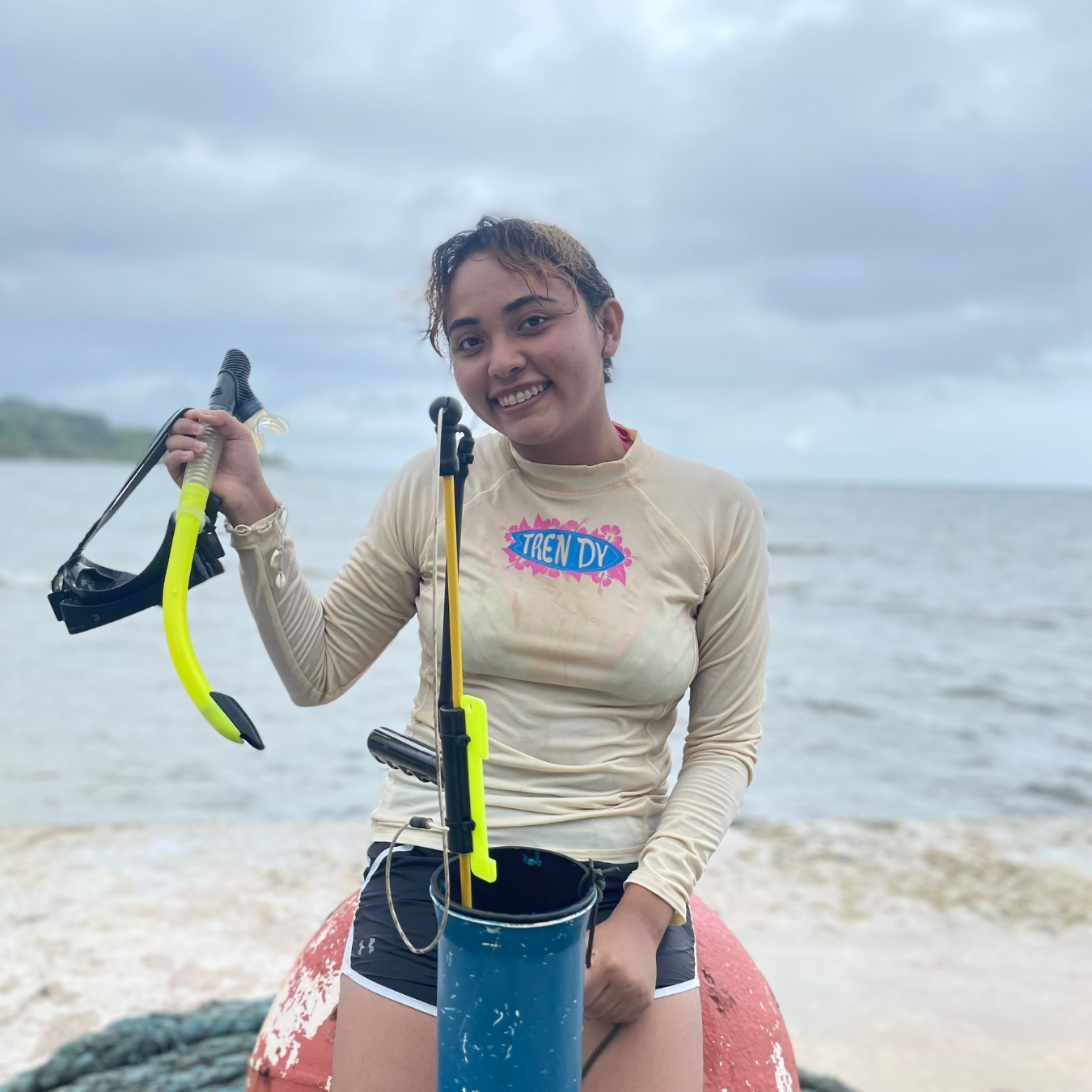
Senaida Tenorio
Panama coordinator
Senaida is a Marine Biology student at the International Maritime University of Panama. She is dedicated to the protection and conservation of sea turtles, and focusing her thesis on determining the rate of mercury present in sea turtles in the Panamanian Pacific, specifically in the coast of Pedasi. She aims for this work to promote environmental education and reduce the consumption of their eggs.
